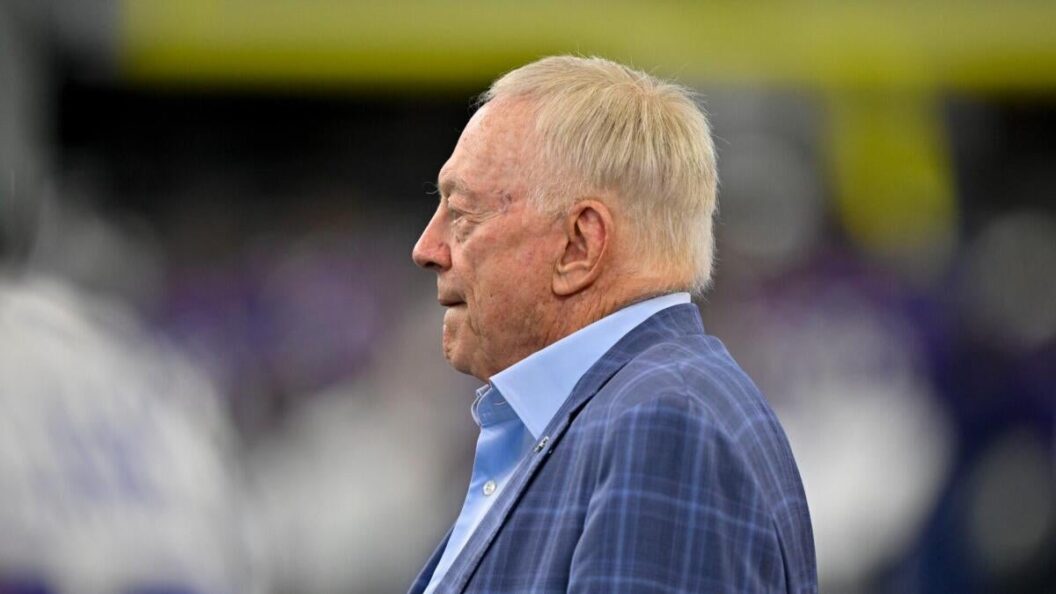Dallas Cowboys Trade Micah Parsons: A Risky Move that Raises Eyebrows
In a surprising turn of events, the Dallas Cowboys traded their star edge rusher Micah Parsons to the Green Bay Packers. The deal, executed amid a backdrop of tension between the organization and Parsons’ camp, has drawn criticism for its timing and implications, raising questions about the Cowboys’ management style.
Details of the Trade
In exchange for Parsons, the Cowboys received two first-round draft picks and defensive tackle Kenny Clark. This decision comes after a protracted negotiation period that saw no resolution in contract talks. Parsons was eligible for a contract extension last offseason, and instead of negotiating then, the Cowboys opted to wait, allowing the market for elite players to reset. As a result, Parsons’ potential asking price rose significantly.
Missed Opportunities
The Cowboys had the chance to secure Parsons as their highest-paid non-quarterback, potentially setting the contract at $34 million per year—just above what Nick Bosa received. Instead, they let the market evolve without engaging Parsons’ agent, David Mulugheta, in discussions.
The Cowboys’ front office has been criticized for similar situations in the past, notably with Dak Prescott and CeeDee Lamb. Prescott, who was first eligible for an extension back in 2019, ultimately signed for $60 million per year, far exceeding initial expectations due to market inflation—something that could have been avoided had the Cowboys acted sooner.
Reactions from Jerry Jones
Cowboys owner Jerry Jones has remained defiant regarding the trade, maintaining that he would not change his approach to managing player contracts and relationships. He expressed that the trade was a strategic choice aimed at improving both the team’s performance and financial flexibility.
However, many analysts question the efficacy of this trade, noting that during Parsons’ tenure as a Cowboy, the team’s defense thrived with him on the field, ranking as the NFL’s best defense in terms of play efficiency. Conversely, the Cowboys’ performance dipped severely when he was off the field.
Concerns About Defensive Capability
While the addition of Kenny Clark may bolster the Cowboys against the run, analysts argue this trade could weaken the defense’s overall pass rush. With questions surrounding depth at the edge rusher position and the uncertain health of several players, many believe replacing Parsons—arguably the best pass rusher in the league—could make the Cowboys more vulnerable defensively.
Financial Implications and Future Prospects
The financial implications of the trade have also come under scrutiny. Although Clark’s contract appears less burdensome this year compared to Parsons’, he is set to count for over $20 million against the cap in the coming seasons. Critics have suggested that if Clark underperforms or seeks an extension, the Cowboys could face even greater cap issues.
Moreover, the two first-round draft picks acquired are expected to be late-round selections. Given the Packers’ potential competitiveness, these picks may not yield immediate value, creating further skepticism about the perceived benefits of the swap.
A Cautionary Tale for the Cowboys
The Cowboys’ handling of Parsons mirrors a longstanding issue regarding their contract negotiations and cap management. As several other teams in the league—such as the Eagles—manage their resources effectively, Dallas continues to operate with a self-rooted belief that their strategy is optimal.
Reflecting on the evolving landscape of NFL contracts, it’s clear the Cowboys have consistently opted for a reactive approach rather than proactively locking down star players. This latest trade serves as both a warning shot about their management style and a poignant example of how stubbornness can lead to questionable decisions.
Conclusion
The trade of Micah Parsons marks a significant shift in the Dallas Cowboys’ strategy and has sparked debate among fans and analysts alike. As the team navigates the complex NFL landscape, questions linger regarding their ability to adapt and grow in a league where dynamic player management is crucial. Whether this trade will ultimately yield the desired results remains to be seen, but it undoubtedly signals a pivotal moment in the franchise’s narrative.









